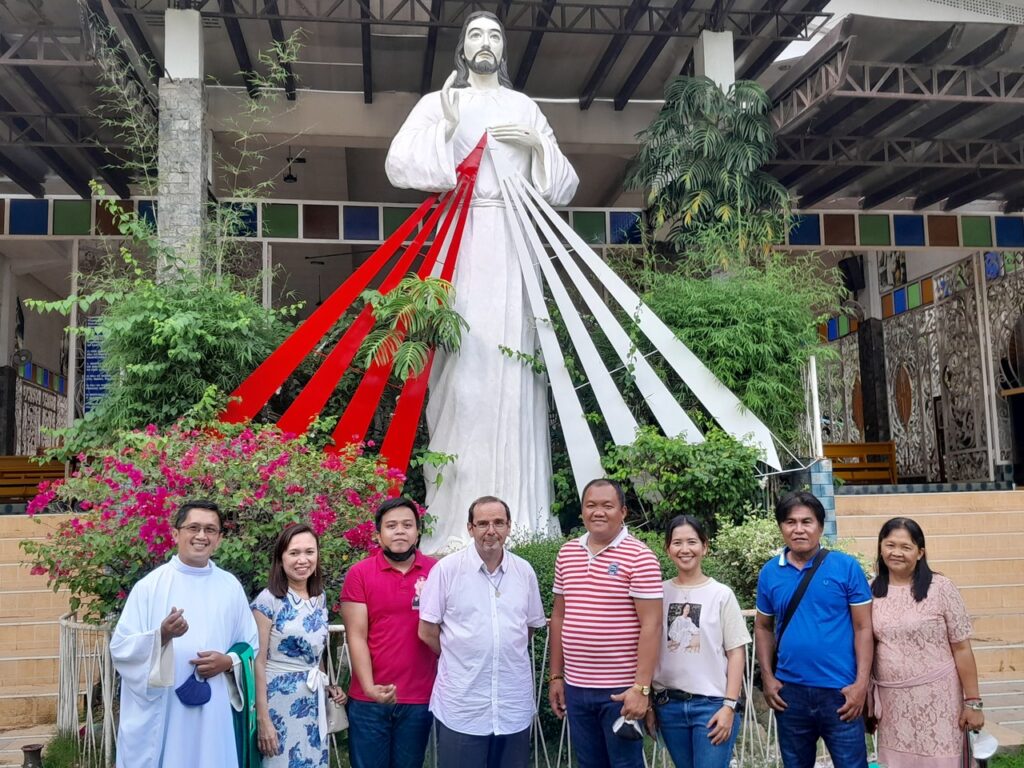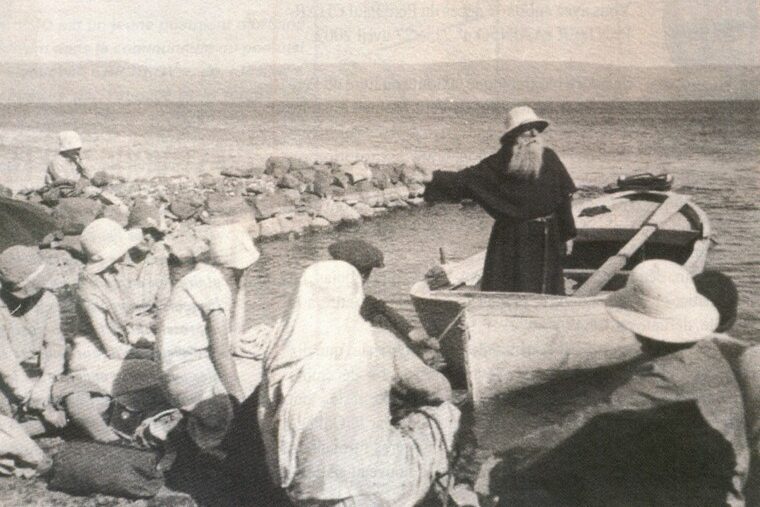From 1872 onwards, the Assumptionists became involved in the pastoral care of pilgrimages, which was quite new at the time! But this initiative was not well received by the anticlericals of late 19th-century France… It must be said that many religious congregations were on the verge of being banned or expelled from France. But the aim is to “re-Christianize France”, to “pray for its salvation and conversion” ! The objective is clear: to offer popular pilgrimages, i.e., open to as many people as possible.
The epic of the first pilgrimages
On April 27 1882, 2 boats carried 1,000 pilgrims from Marseille to Jerusalem…
It was from this movement that Pilgrimages Work Notre Dame de Salut was born, one of the mobilizing works of our congregation! From this initial breeding ground, Assumptionists around the world multiplied their initiatives to organize pilgrimages (Lourdes; Jerusalem; in the footsteps of St. Paul in the Mediterranean basin, but also in Belgium; Vietnam; South Korea; Africa; the Americas…) or the founding and/or animation of sanctuaries (Le Montmartre Canadien in Quebec, Lourdes sanctuaries in Chile and Argentina; St Pierre en Gallicante in Jerusalem; St Anne’s sanctuary in Fiskdale, USA… And more recently, the sanctuary of Divine Mercy in Digos, Philippines; the sanctuary of Bon Jésus in Brazil; the sanctuaries of Namanga or Bura in Kenya… ).
Pilgrimage Work Notre-Dame de Salut
One of our mobilizing works

In 1872, in response to the secularization of France, Father François Picard (later to become the 2nd Assumptionist Superior General) and Mother Marie-Eugénie de Jésus (foundress of the Religious of the Assumption) founded the “Association Notre Dame de Salut”. Among several initiatives, the pilgrimages organized by the association became its flagship work.
A first pilgrimage to La Salette brought together 2000 pilgrims and 375 priests to pray “for the conversion of France”, followed by Rome and the “National Pilgrimage” to Lourdes in 1873, and Jerusalem in 1882. After founding our own travel agency , “Voyages et Pèlerinages Notre-Dame de Salut” , which operated in collaboration with Bayard from 1958 to 2012, we returned to our fundamentals in 2023, when Bayard acquired the BIPEL agency (Bureau Interdiocésain des Pèlerinages), founded in Rennes in 1990.
The 2023 General Chapter insisted on the need to strengthen synergies between the various pilgrimage initiatives organized by Assumptionists around the world, hence the choice in 2024 to make the Pilgrimage Work a mobilizing work for the entire congregation.
“We will promote training in pilgrimage animation according to the Assumptionist charism, particularly for recent foundations, and the transmission of our know-how in this field. This could be achieved through greater synergy between our works in this field.”
General Chapter of 2023, n°137
The Pilgrimages work in figures: over 150 years of existence; 1,000 participants in the 1st pilgrimage to Jerusalem; up to 50,000 pilgrims in the Pèlerinage National; today, on 4 continents (Europe, Asia, the Americas, Africa) Assumptionists organize pilgrimages and/or manage shrines.

The “Pèlerinage National” today
The Pèlerinage National brings thousands of pilgrims to Lourdes on the feast of the Assumption of the Virgin Mary. It is organized and run by the Assumption family, the Hospitality Notre Dame de Salut and the Association Notre Dame de Salut.

Shrines around the world
Some of the Shrines run by Assumptionists today:

St Anne’s Shrine and St Patrick’s Parish in Sturbridge (MA-USA) – See also their website
BIPEL – travel agency

Acquired in 2023 by Bayard... The agency that brings culture and hope to your travels and pilgrimages. For several decades now, Bipel has been applying its expertise and know-how :
- in pilgrimages, at the service of Christian communities and pilgrims, enabling them to enjoy a genuine spiritual experience in the footsteps of Christ, listening to God, or following in the footsteps of the saints.
- in cultural travel for unforgettable spiritual, historical and heritage experiences.

















